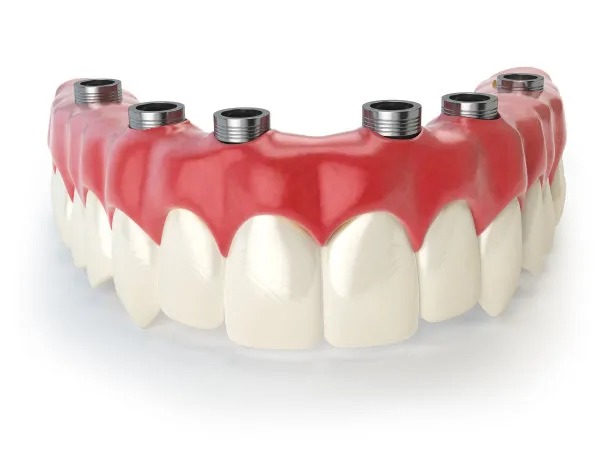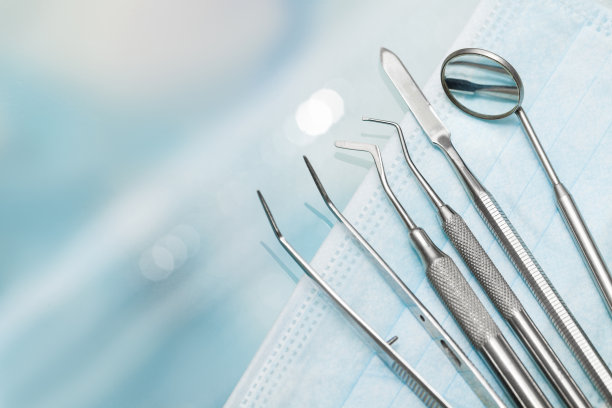Summary: Extracting a tooth is often a necessary dental procedure, yet it marks the beginning of a crucial recovery phase. Proper care following tooth extraction is vital for optimal dental health andWell-being. This article elaborates on the significance of adhering to post-extraction instructions, managing pain and swelling, maintaining oral hygiene, and understanding the role of diet during recovery. By following the recommended guidelines, patients can not only ensure a smoother recovery process but also reduce the risk of complications, promote healing, and maintain the overall integrity of their dental health.
1. The Importance of Adhering to Post-Extraction Instructions

After a tooth extraction, the dentist typically provides specific post-operative instructions that are designed to facilitate healing. These include guidance on how to care for the extraction site, medications to take, and activities to avoid. Following these instructions is crucial as they are tailored to prevent potential complications such as dry socket, which can impede recovery and cause severe discomfort.
Moreover, patients should be vigilant about any signs of unusual symptoms, such as excessive bleeding or severe swelling. Noticing these signs early on can help in seeking prompt medical attention, which is vital for ensuring proper healing and safeguarding dental health. It emphasizes the importance of ongoing communication with the dentist during recovery.
Finally, understanding the timeline for healing can help set realistic expectations for the recovery process. Knowing when to expect discomfort or when normal activity can resume allows patients to plan their days better, ultimately leading to a more satisfying recovery experience.
2. Managing Pain and Swelling Effectively
Pain and swelling are common after tooth extraction, but effective management can significantly enhance comfort. Dentists often recommend ice packs and anti-inflammatory medications to minimize these effects in the initial days following the procedure. Applying ice packs intermittently can help constrict blood vessels and reduce swelling, making the recovery process more manageable.
Over-the-counter pain relief options like ibuprofen or acetaminophen can be effective, but they should be taken as directed by the healthcare professional. Adhering to the prescribed dosage is crucial for both effectiveness and safety. Patients should also be mindful of their pain levels and communicate with their dentist if pain persists or worsens.
Furthermore, incorporating relaxation techniques such as deep breathing or meditation can aid in reducing anxiety associated with post-surgical pain. This holistic approach to managing discomfort can result in a more positive recovery experience, greatly benefiting dental health.
3. Importance of Maintaining Oral Hygiene
Maintaining oral hygiene after a tooth extraction is fundamental to prevent infection and promote healing. It is important to gently rinse the mouth with warm salt water starting 24 hours after the procedure, as this helps keep the area clean without disrupting the blood clot that forms in the socket.
Patients should still brush their teeth but should avoid the extraction site directly for the first few days. Using a soft-bristle toothbrush can minimize irritation to the surrounding area. Practicing good oral hygiene not only promotes healing but also reduces the risk of bacteria entering the extraction site, which can lead to complications.
Additionally, regular follow-up appointments with the dentist can further ensure that the extraction site is healing properly. Dentists can provide professional cleaning and monitoring, which is essential for maintaining oral health throughout the recovery phase.
4. Understanding the Role of Diet during Recovery
Diet plays a pivotal role in the recovery process following tooth extraction. Initially, soft foods are recommended as they are easier to chew and less likely to irritate the extraction site. Foods such as yogurt, mashed potatoes, and smoothies can provide essential nutrients while being gentle on healing tissues.
Staying hydrated is equally important, but patients should avoid using straws, as the suction can dislodge the blood clot and result in dry socket. Incorporating nutrient-rich foods, such as fruits and vegetables, can support the body’s healing mechanisms, enhancing recovery.
As the healing progresses, patients can gradually reintroduce their regular diet. However, they should avoid hard, crunchy, or sticky foods for an extended period. Being patient with dietary adjustments during recovery can lead to better outcomes and preserve dental health.
Summary:
Overall, the importance of proper care and recovery after tooth extraction cannot be overstated. By following post-operative instructions diligently, managing pain and swelling, maintaining oral hygiene, and adopting a thoughtful dietary approach, patients can significantly enhance their healing process. Maintaining these practices not only promotes immediate comfort but contributes to long-term dental health, reducing the likelihood of further complications.
This article is compiled by Vickong Dental and the content is for reference only
Vickong Dental
Vickong Dental is a large medical group established in Hong Kong in 2008 by professors from well-known medical universities in Guangdong and Hong Kong, as well as medical doctors from key national '985' universities (including Master's supervisors and senior professors). The chain of branches brings together expert dentists with PhDs and Master's degrees from Hong Kong and Mainland China, committed to providing high-quality dental treatment.
"Vickong Dental Practices the University Motto of 'Healing and Serving Society,' with a Stable Operation for Sixteen Years. It Has Been honored with Hong Kong Enterprise Leaders's Choice,' and is a Global Trusted Implant Center for the Nobel Implant System. Recommended by Hong Kong Metro Broadcast and Guangdong Television, it Serves Customers from Over Thirty Countries and Regions, Gaining the Trust and Favor of Citizens from the Guangdong-Hong Kong-Macau Greater Bay Area and Surrounding Cities.

Thousands of customers' unanimous praise
The most recognized and highly recommended dental service by customers in the Guangdong-Hong Kong-Macau Greater Bay Area
We Ensure You Receive Detailed Care and Attention Here
Hong Kong standards, Shenzhen prices, Your Trusted English-speaking dentists

Vickong Dental Medical-Grade Instrument Disinfection Process
Vickong Dental Medical-Grade Instrument Disinfection Process

Vickong Dental Chain: A Warm and Comfortable Environment for Treatment






Appointment Hours

Q&A
Why choose Vickong Dental?
Vickong Dental practices the university motto 「Medicine to Benefit Society」, with each branch bringing together highly qualified dentists with doctoral and master’s degrees from Hong Kong and the Mainland, and has maintained seventeen years of steady operation。Recipient of 「2024 Hong Kong Enterprise Leaders Brand」, 「2025 Hong Kong Enterprise Leaders Brand」, a Nobel Biocare Global Trusted Implant Center, and a brand recommended by Metro Radio Hong Kong and Guangdong TV。
To date, we have served customers from more than thirty countries and regions,earning exceptionally high word-of-mouth recognition and trusted recommendations from residents across the Guangdong-Hong Kong-Macao Greater Bay Area and surrounding cities
We have eight major branches in Zhuhai、Shenzhen,and a consultation and service assurance center in Hong Kong,so you can book a free consultation at any time for any questions,which is very reassuring.
If I do not accept the quotation after the CT scan, will I be charged??
No! As long as the actual treatment has not started, you will not be charged any fees.
Will there be any additional charges during the treatment process?
No, there won’t be any additional charges. Before treatment begins, we will clearly explain the treatment plan and its corresponding fees. Only after the patient agrees and signs the consent form will we proceed with the dental service.
Can I pay in Hong Kong dollars?
Yes. Vickong Dental accepts payment in Hong Kong dollars. The amount will be converted based on the exchange rate of the day, and the applicable rate will be clearly communicated to you in advance.
Can I reschedule my appointment at any time?
Yes. Please contact us via **WeChat** or **WhatsApp** as early as possible, providing your original appointment time and details, along with your preferred new date and time slot for rescheduling.













